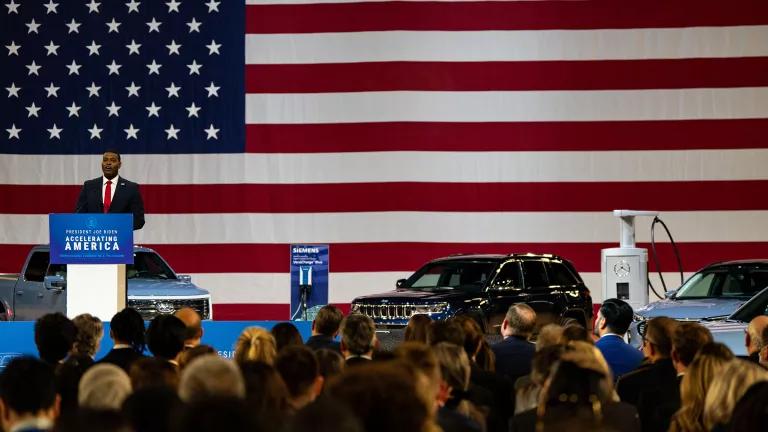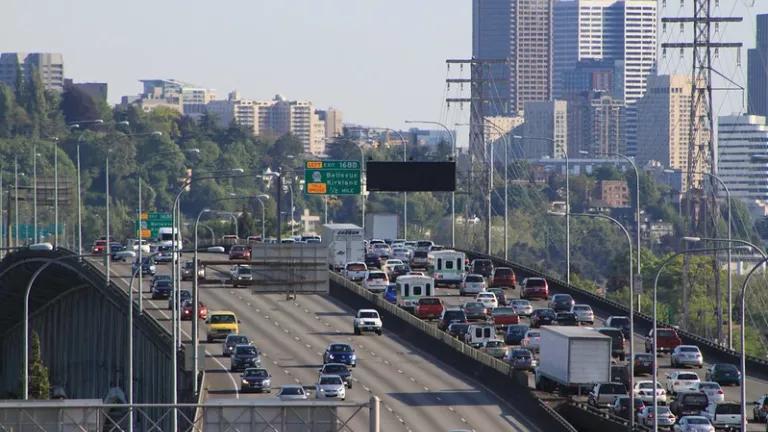New Policy Boosts Access to EV Charging
The federal action will improve access for millions of Americans.

An electric vehicle driver charging up her car
Getty Images
The U.S. Department of the Treasury announced a new policy that gives consumers and businesses access to federal tax credits that reduce the cost of installing electric vehicle (EV) charging stations. And the U.S. Department of Energy published maps that make it easy for people to determine which census tracts will be eligible for these critical tax credits.
To address climate and local air pollution, we must plug our cars, trucks, and buses into increasingly clean electricity. To do that, we need more plugs. The guidance issued today will make it significantly cheaper to do that, providing individuals up to $1,000 to install charging at home and businesses up to $100,000 to install commercial charging equipment.
The Inflation Reduction Act extended the Section 30C tax credit and increased the maximum amount that businesses could claim, but it also restricted eligibility to low-income communities and census tracts that are “not urban.” However, it didn’t define what “not urban” means; instead, it defined the opposite as a census tract that was designated as “urban” by the U.S. Census Bureau. But the Census Bureau doesn’t designate tracts one way or the other. Instead, it designates census blocks as being urban or not. There are often more than 100 blocks in any given tract, meaning it was up to the Treasury Department to determine how many not-urban blocks would render a whole tract not-urban.
To ensure people living in not-urban blocks weren’t unduly denied access to the tax credit just because they happen to live next to people who live in urban blocks, the Treasury took a commonsense, inclusive approach, issuing guidance that says a tract cannot be described as urban if more than 10 percent of the comprising blocks are not-urban. After all, you wouldn’t call it an apple if it were more than 10 percent an orange.

According to analysis done by NRDC, this definition of eligible census tracts will prevent a total of 32 million people from being unduly denied access to the tax credit, relative to a more restrictive definition, including:
- 4.7 million rural residents
- 2.1 million people in poverty
- 2.2 million Black people
- 3.6 million Hispanic/Latine people
This inclusive approach was supported by NRDC and 31 other public interest, environmental, public health, and environmental justice groups, as well as EV charger manufacturers, light- and heavy-duty vehicle manufacturers, truck stop and convenience store operators, major retailers, labor unions, and other key stakeholders. These folks don’t always agree, but they all supported this commonsense policy.
It's a good day to charge in America.



